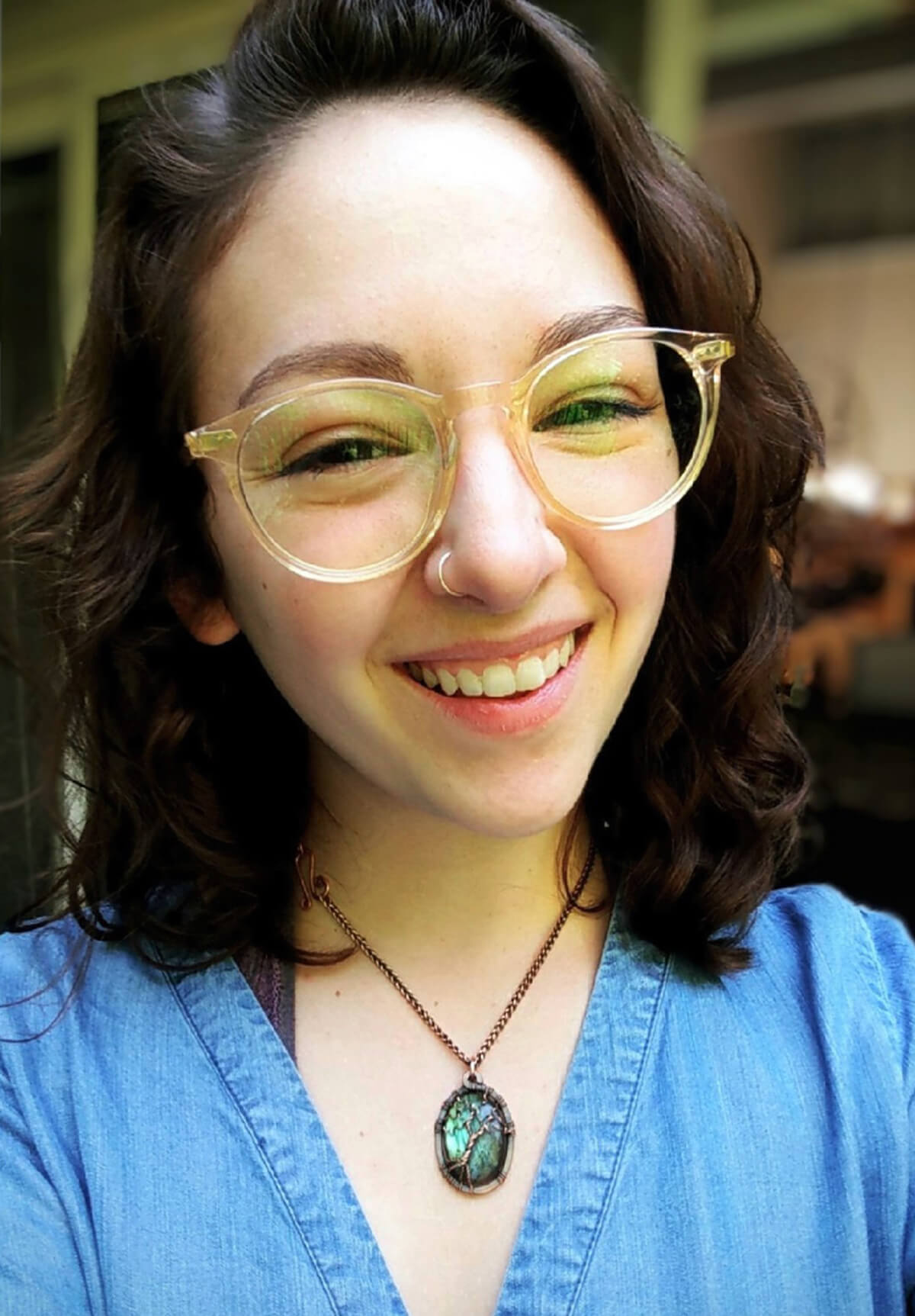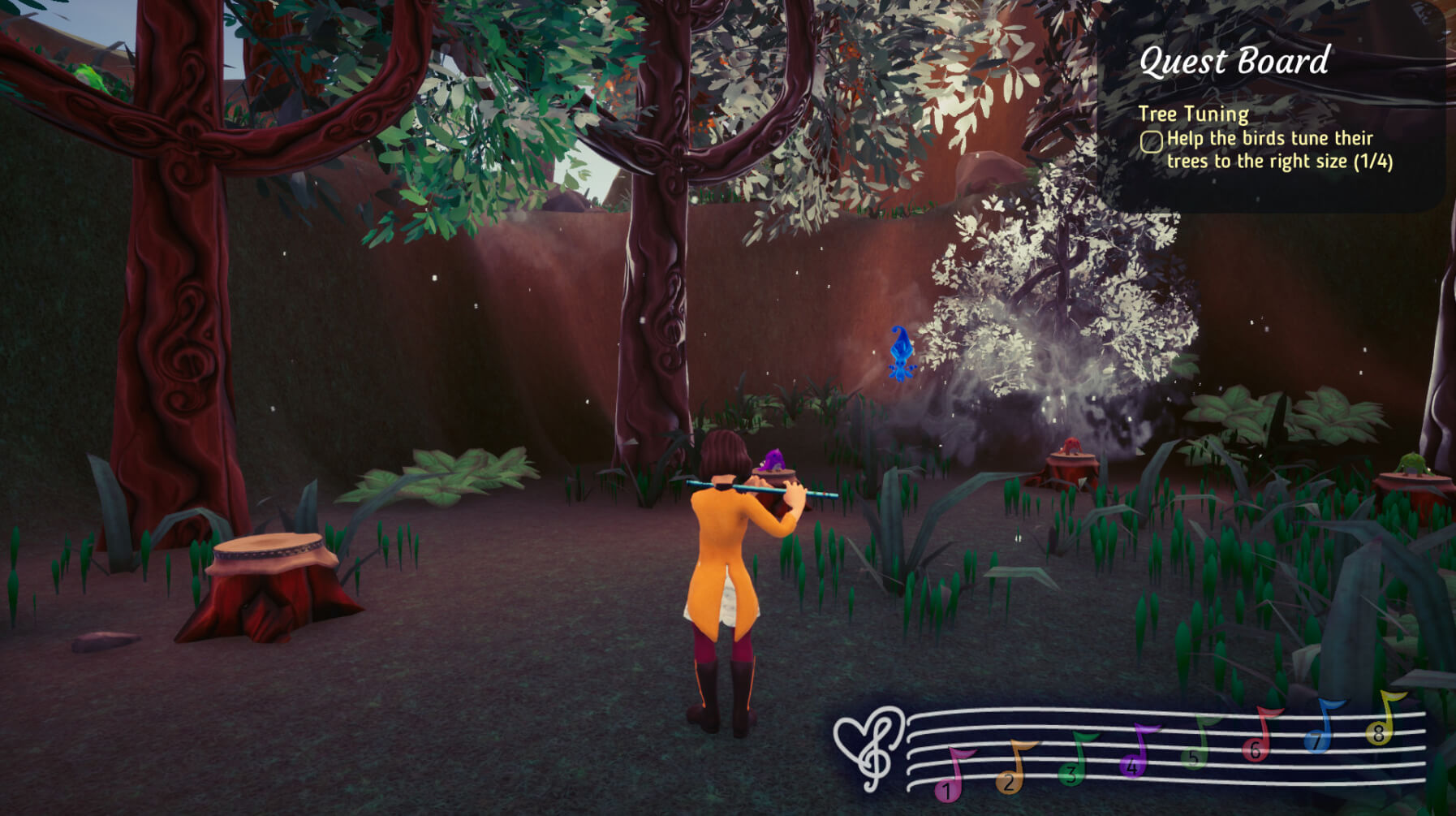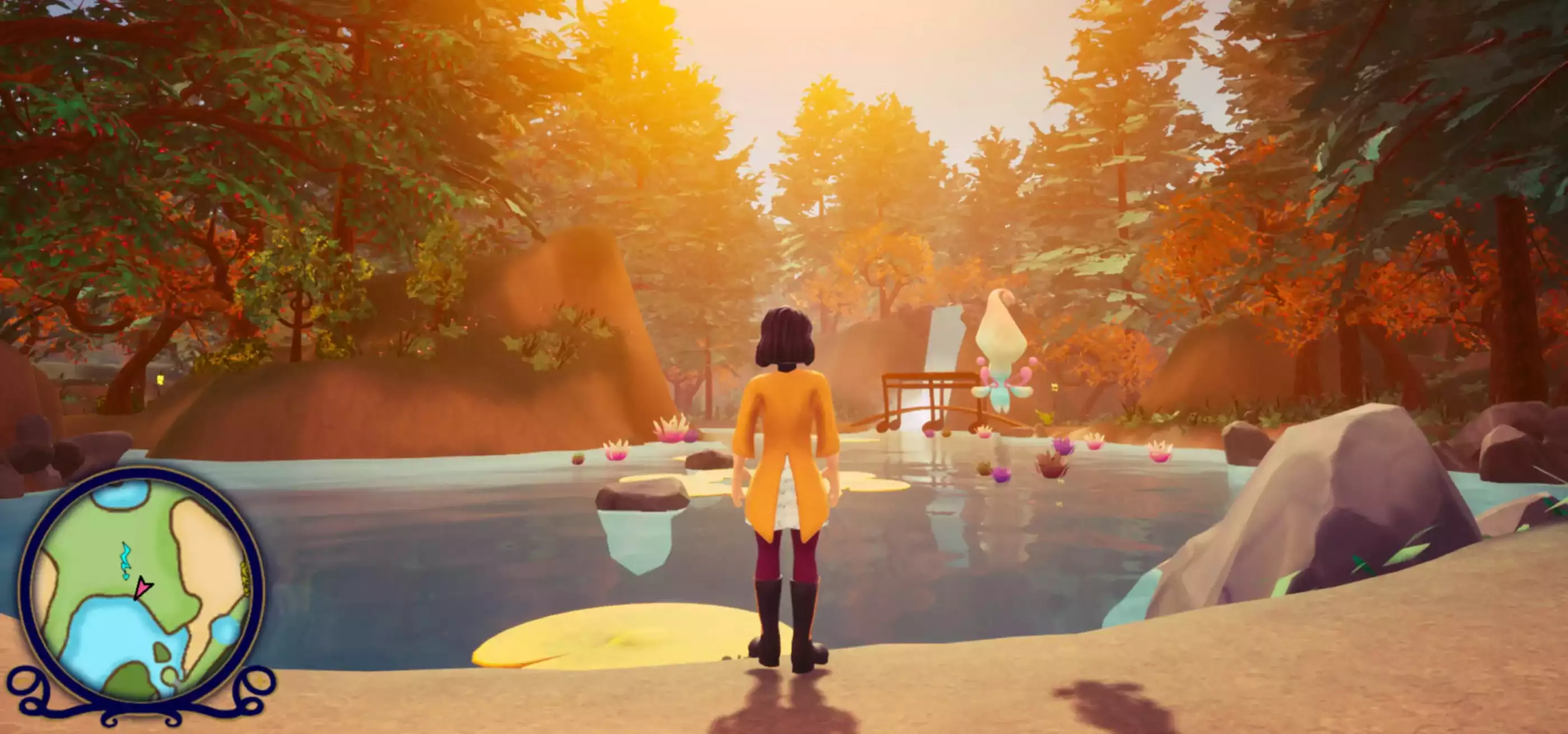In Mozart’s classic opera The Magic Flute, a prince awakens in a mysterious land, where he’s gifted a flute with the power to turn sorrow into joy. It’s a story that 2020 DigiPen MFA in Digital Arts graduate Natalie Spitzel knows well, both through her musical background and her own lived experience. An aspiring opera singer since 8 years old, Spitzel first went to college for vocal performance, a dream that was suddenly halted by a chronic illness two years into her undergraduate degree. “It was devastating to me,” Spitzel says. “Performing opera was all I had ever wanted to do with my life. I felt lost.”

Instead of leaving school, she decided to take an intro visual arts class on a whim. To her surprise, she fell in love and discovered a gift she didn’t know she had. “It filled the creative void that was left in my heart after losing my ability to perform,” she says. That love eventually led her to DigiPen’s MFA program, where she ended up combining her old and new passions to create her thesis project, Lirica. The musical adventure game, starring a flute-wielding hero, is set in a fantastical world of opera replete with thematic nods to The Magic Flute.
If the route from opera singer to game developer sounds unusual, so too was Spitzel’s decision to create a game team project with undergraduate students for her MFA thesis — a typically solo endeavor kept smaller in scope than a game project. “As I was approaching the end of my time at DigiPen, I couldn’t stop thinking about the fact that I would leave my program without ever having gone through the entire process of creating a game,” Spitzel says. “I was envious of the undergraduates for it, so when it came time to choose what to do for my thesis, I knew I wanted to take it on.” Spitzel’s thesis mentor, senior lecturer Brigitte Samson, serendipitously also taught junior game project courses and was able to help get the word out about her pitch to undergraduates.
At first, Spitzel was unsure she’d be able to recruit a game team around her idea. “Not many people are familiar with the wonderful stories and music of opera, and I wanted to give people that experience in a fun and modern way,” she says. “I didn’t really know many undergraduate students at DigiPen, and I was worried that no one would be interested in signing onto a project for someone they had never heard of.” Despite her fears, she drafted up a flyer with concept art that advertised her game idea and soon found plenty of passionate, willing candidates. “I was actually really surprised at how many people wanted to join me!” Spitzel says. “Most of the students that wanted to team up had a connection to music and really liked the idea. Others knew that this game would be heavily art focused and wanted a chance to have portfolio-quality work.”
Suddenly, Spitzel had a large team of 19 students amassed around her vision, one she had to learn to take charge of as a creative director. “I had gone into the project expecting to be the art director and just focus on leading the artists, but I quickly realized that every member of the team would need support in how to follow the vision for the game,” Spitzel says. On top of creating environment art and overseeing the team’s artists, the journey found her providing direction, feedback, and content for Lirica’s systems design, user interface, and even its marketing. The game follows the human hero Renatta, who awakens in Lirica, a land of opera that’s slowly fading away and suffering strange abnormalities as its inhabitants forget their songs. Guided by a faun named Papageno, Renatta must use her magical flute to help the citizens of Lirica and restore the land to its former glory. “It was a lot to handle,” Spitzel says, “but I got to learn so much about different areas of game development.”

While the process proved taxing at times for the busy graduate student, the payoff was more than worth it. Today, Spitzel works as a full-time 3D environment artist on the next unannounced title from Iridium Studios, a position she explicitly landed thanks to Lirica. “Every time I have gone back to DigiPen, I tell MFA students to really consider what they want to work on for their thesis, because I wouldn’t have this job if I didn’t make Lirica,” Spitzel says. “The environment art lead at our studio actually found the project on ArtStation and reached out to me, because it was exactly what they wanted for their next game. Doing something different that mattered to me helped me connect with a studio that had a similar vision.”
It’s a position Spitzel has cherished the past two years, spending her days modeling environment assets for game levels and contributing to other areas like concept art and even hiring. “One thing I love about working at an indie studio is that you get to jump around to multiple areas if you want to change things up,” Spitzel says. “The environment is really relaxed, and every single person that works here is kind, passionate, and hardworking.” Spitzel says the collaborative team development process she learned through Lirica has been a huge asset now that she’s out in the industry. One other unexpected asset? Her old DigiPen notebook. “Make sure you keep all of your class notes and documentation!” Spitzel says. “You never know when it may come in handy. There have been plenty of times I have pulled out an assignment brief or notes that I have shown my coworkers for something specific we are working on.”
